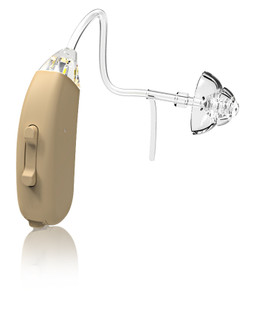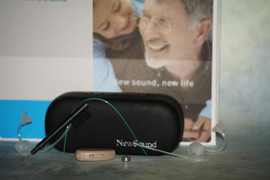Hearing Loss can be caused by Poor Nutrition
May 02, 2022
Contrary to popular perception, hearing loss is not always caused by aging, genetic factors, prolonged exposure to loud noise, metabolic slow-down or muscular degeneration? It can also be triggered due to inadequate or poor diet. Yes, you read right. This may come as a huge surprise to many, but there is a definite link between nutrient intake and susceptibility to hearing loss.
Though seldom acknowledged, the quality of food consumed plays a key role in the functioning of the auditory system. If you are already afflicted by the disability and want to overcome the problem to lead a fulfilling life, try using open fit hearing aids after professional consultation. Meanwhile, impairment to the ears can be nipped in the bud by focusing on nutrients and adhering to a healthy dietary pattern.
It’s no big secret that micronutrient imbalance or deficiency can have profound consequences on overall well-being, so why not hearing sensitivity right? Read on to learn how poor nutrition can be a contributory factor to hearing decline.
Adverse Effect of Nutrition Deficiency on Ear Health:
Micronutrients are vital for the proper functioning of the ear. Studies indicate a dietary pattern lacking essential vitamins and minerals can have an adverse effect and increase the incidence of hearing loss. It can weaken the bones of the inner ear which can damage hearing.
Specifically, insufficient levels of vitamin A increase the risk of developing otitis media (inflammatory diseases of the middle ear) while lower protein intake impacts auditory capacity. That’s not all. Vitamin B deficit increases the risk of deafness while a scarcity of vitamin D can activate bone loss and cause abnormal bone growth in the middle ear which can even lead to deafness.
Research also suggests that inadequate levels of vitamin B-12 increase the threat of noise-induced hearing loss (NIHL), ringing in the ears and age-related hearing impairment (Presbycusis). And yes, shortage of iron and iodine too can increase the risk of hearing loss.
Now that we have established that nutrition deficiency can affect hearing negatively, let’s throw some light on how eating well can reduce the damaging effects of the same to keep ears healthy.
The Connection between Nutrition & Hearing Impairment:
There is documented evidence that food items rich in nourishing nutrients can have a positive effect on auditory capacity. Potassium found in bananas, spinach, potatoes, yogurt, and black beans, etc. is important for the functioning of the inner ear that alters sounds into electric signals for the brain to decipher. Zinc-rich foods (almonds, nuts, chicken and dark chocolate) have been proven to be effective in reducing the severity of tinnitus symptoms. Magnesium (bananas, broccoli, almonds, brown rice, etc.) helps in thwarting the formation of free radicals that damage the delicate inner ear cells.
Foods high in folic acid keep hearing healthy by regulating the blood flow to the inner ear structures. Omega 3 fats found in fish, flaxseed, walnuts, soybeans, chia and canola oil strengthen the blood vessels in the ear’s sensory system.
Vitamins Boost for Ear Health:
Vitamins, brimming with antioxidant properties are known to bestow many benefits for maintaining ear health. They pack a punch when it comes to trouncing age-related hearing loss and countering the damaging effects to ears in high-noise situations. Citrus fruits and items like kiwi, broccoli, kale, tomatoes, berries, and peas loaded with vitamin C can prevent harm to hair cells in the cochlea.
They are also effective in fending off infections and safeguarding the organ against excessive noise exposure. Foods like nuts, spinach, kale and turnips that provide vitamin E improve the blood circulation to the hair cells of the inner ear. In addition, healthful options of vitamin D (mushrooms, seafood, and dairy products), and B12 strengthen the ear bones and prevent tinnitus.
Bottom Line:
Hearing impairment affects over a billion people worldwide. It is viewed as a disability of great magnitude that can have significant consequences on the quality of life of an individual. Fortunately, hearing loss is preventable.
You can boost your hearing capabilities and keep your ears healthy by making good choices with regard to nutrition. In short, focus on nutritional interventions that are low in carbohydrates and sugar but contain a good mix of fruits and vegetables, healthy fats and proteins to deflect the occurrence or progression of this sensorial deficit.
High-Tech Hearing Aids:
If you are experiencing symptoms of impaired hearing and suspecting the onset of the disability, it’s important to seek professional health to schedule a full evaluation of the condition with diagnostic testing. There is a whole array of high-tech devices from reputed brands like Siemens and New Sound hearing aids available to address the issue effectively. However, it’s best to garner useful information on the devices by visiting credible websites and checking verified hearing aid reviews before deciding which model works best for your needs, lifestyle, and condition.










